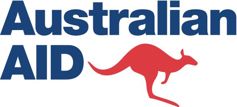Systematic Community-Wide Engagement & Elimination Project for TB in Daru, Western Province, Papua New Guinea, or Yumi Bung Wantaim Na Rausim TB Long Daru, SWEEP-TB aims to substantially reduce tuberculosis (TB) incidence (case notification) in the population of Daru through the implementation of a comprehensive community-wide strategy that combines enhanced case detection, effective treatment and novel strategies for prevention, including preventive therapy for multidrug-resistant/rifampicin-resistant (MDR/RR) TB.
Objective 1: Detect and treat – To implement systematic screening of all Daru residents to detect and treat prevalent disease due to drug-susceptible (DS-TB) and MDR/RR-TB.
Objective 2: Prevent – To provide TB preventive therapy or BCG vaccination to eligible Daru residents under 35 years of age to prevent infection and disease due to DS-TB and MDR/RR-TB.
Objective 3: Evaluation and knowledge transfer – Evaluation of the intervention, conduct operational research training in TB for PNG researchers and support higher degree research student supervision.
2022–2025
SWEEP-TB involves prospective implementation research embedded in a public health project, as part of the Western Province TB program. The project is being implemented by the Western Provincial Health Authority (WPHA) and the Burnet Institute in collaboration with the National TB Program (NTP), the University of Papua New Guinea (UPNG), the PNG Institute of Medical Research (PNG IMR) and World Vision International.
A community advisory group (CAG) has been established to co-design community mobilisation and engagement approaches and inform health promotion and implementation. The CAG has self-named “TB Nanito Kopia Kodu” which translates as “the voice to kill TB” in Daru.
Daru residents are being screened for TB symptoms and mobile chest x-ray with artificial intelligence (CAD4TB) in addition to standard care to detect and treat active TB. A tuberculin skin test (TST) is administered after consent from residents aged 5-34 and if positive, TB preventive therapy (TPT) with a novel regimen of 6 months of isoniazid and levofloxacin (6Hlfx) to cover booth MDR/RR-TB and drug-susceptible (DS) TB is offered. Those <35 years without TB disease or infection are offered BCG if not previously vaccinated.
Operational mixed-methods research will evaluate the impact, acceptability, feasibility and cost-effectiveness. The intervention will build on the local leadership, programmatic experience and platform of innovation that has been established in Daru. Ongoing engagement and placing the affected community at the centre of the response remains critical to success.
Evaluation of the intervention will be conducted through operational research projects delivered through Burnet’s established SORT-IT partnership (Structured Operational Research Training Initiative) with capacity building and knowledge transfer to PNG researchers.
The project will strengthen the health system and workforce. SWEEP-TB complements and is co-funded by an established Burnet project, Reducing the Impact of Drug-Resistant TB (RID-TB) in Western Province, which strengthens the health system and provides technical assistance to the WPHA TB program to respond to TB.
The significant individual health and health system burden of ongoing TB and MDR/RR-TB transmission in Daru is a compelling rationale for the potential benefit of the community-wide approach to detect, treat and prevent DS- and MDR/RR-TB. High rates of uptake, adherence and treatment completion will be critical for effectiveness of the intervention and therefore a community-centred approach is key.
The study aims to be as inclusive as possible. All eligible members of the community will be actively encouraged to participate through community engagement, education and the informed consent process. This will include priority groups such as age (children, adolescents and older persons), pregnant women, people living with disabilities (including cognitive impairment and mental illness) and people living with HIV.
Early detection and treatment of TB (active and latent) can reduce TB transmission in the community, and there is a broader benefit in increasing knowledge and awareness of TB.
Specific individual benefits include the diagnosis and treatment of TB disease for those not yet identified and preventing the development of TB disease in those with latent TB infection.
Health care workers in Daru will benefit through the implementation of evidence-based practice, research and capacity strengthening initiatives that build sustainable workforce capacity.
The comprehensive community-based model of care developed through the SWEEP-TB project will generate new knowledge relevant to improving health outcomes in Daru and will have applicability to similar high transmission MDR-TB settings in PNG and elsewhere.

Associate Professor Suman Majumdar
Contact Associate Professor Suman Majumdar for more information about this project.

Professor Steve Graham
Contact Professor Steve Graham for more information about this project.
Funding
Partners

- Australian Government – Medical Research Future Fund (MRFF) grant ID MRF1201008
- Supported by the Australian Government via the PNG Australia Transition to Health (PATH) Program
Partners +
Collaborators
- Western Provincial Health Authority
- National Department of Health PNG
- PNG Institute of Medial Research (PNG IMR)
- University of Papua New Guinea (UPNG)
- World Vision International
Project
Team
Meet the project team. Together, we are translating research into better health, for all.
Publications
VIEW ALL RESEARCHMajumdar SS, Islam S, Lin Huang K, Morris L, Bauri M, Chan C, Kama G, Keam T, Peacock-Smith A, Finch S et al.
- 10 Jan 2023



























